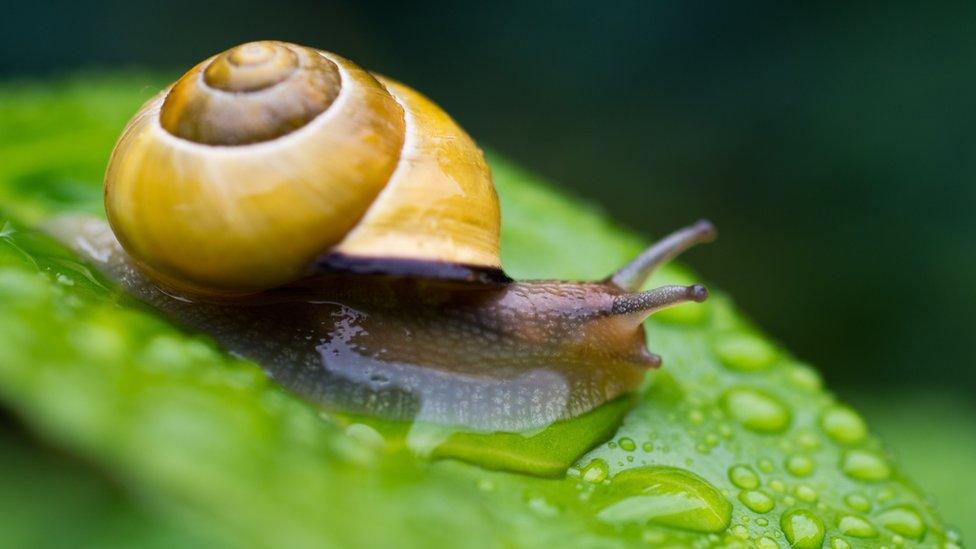Flowerboys and the appeal of 'soft masculinity' in South Korea
- Published
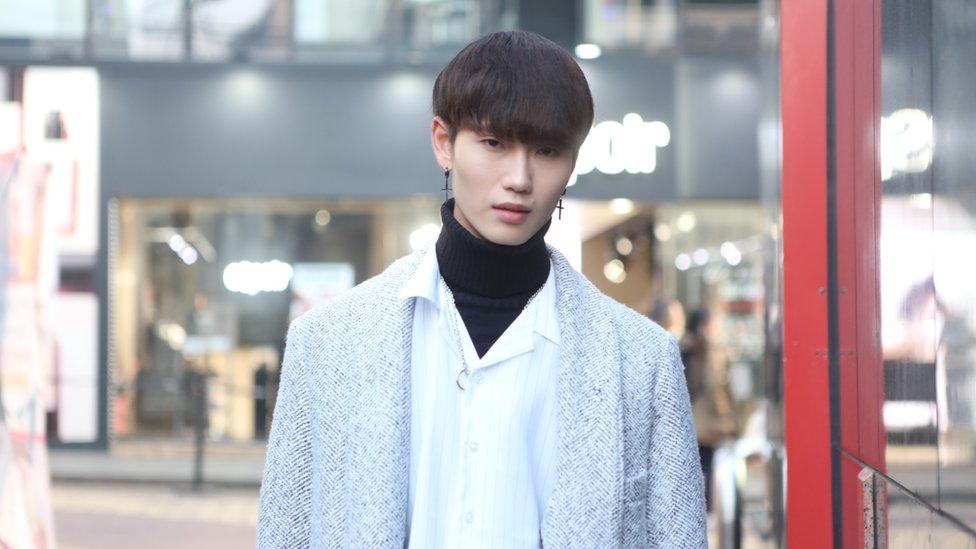
A man wearing make-up on the street may elicit unwelcome glares, questions about his masculinity and even his sexuality. But in South Korea, ideas about how to look good as a man are changing attitudes and influencing the world, as the BBC's Saira Asher reports.
When the BBC posted a video about the make-up routine of a 16-year-old YouTuber in Seoul on Facebook, the reactions ranged from intrigued to downright vitriolic.
Some assumed this meant he was gay, while others admonished him for his choice saying "real men don't wear make-up". There were, of course, those that argued for his freedom to live life however he pleased and against the "fragile masculinities" on show.
But Kim Seung-hwan is used to it. He says he's been called gay by some Koreans online for as long as he's been doing make-up tutorials.
A YouTube vlogger talks about why he wears make-up
When asked about whether he thought he looked feminine after he put on make-up, he was confused by the question as if he had never even thought about it.
"No I don't. I do not think about this being a girly look," he says. "It's about looking good."
Inside a male beauty salon
For those uncomfortable with men who wear make-up, the scene at a high-end salon for men in Seoul's Gangnam district would have been quite something. But it points to an important shift in cultural expectations.
Senior make-up artist Han Hyun-jae expertly applies foundation, eyeliner and lipstick on a man. He chooses from an array of products and brands that will be familiar to most women, and goes in for the final touches of what he calls the K-pop (short for Korean pop) look . It's a scene that repeats itself day after day.
Packs of confident young men saunter into the salon and then leave with perfect skin and hair. Many of them are singers or actors on their way to promotional events.

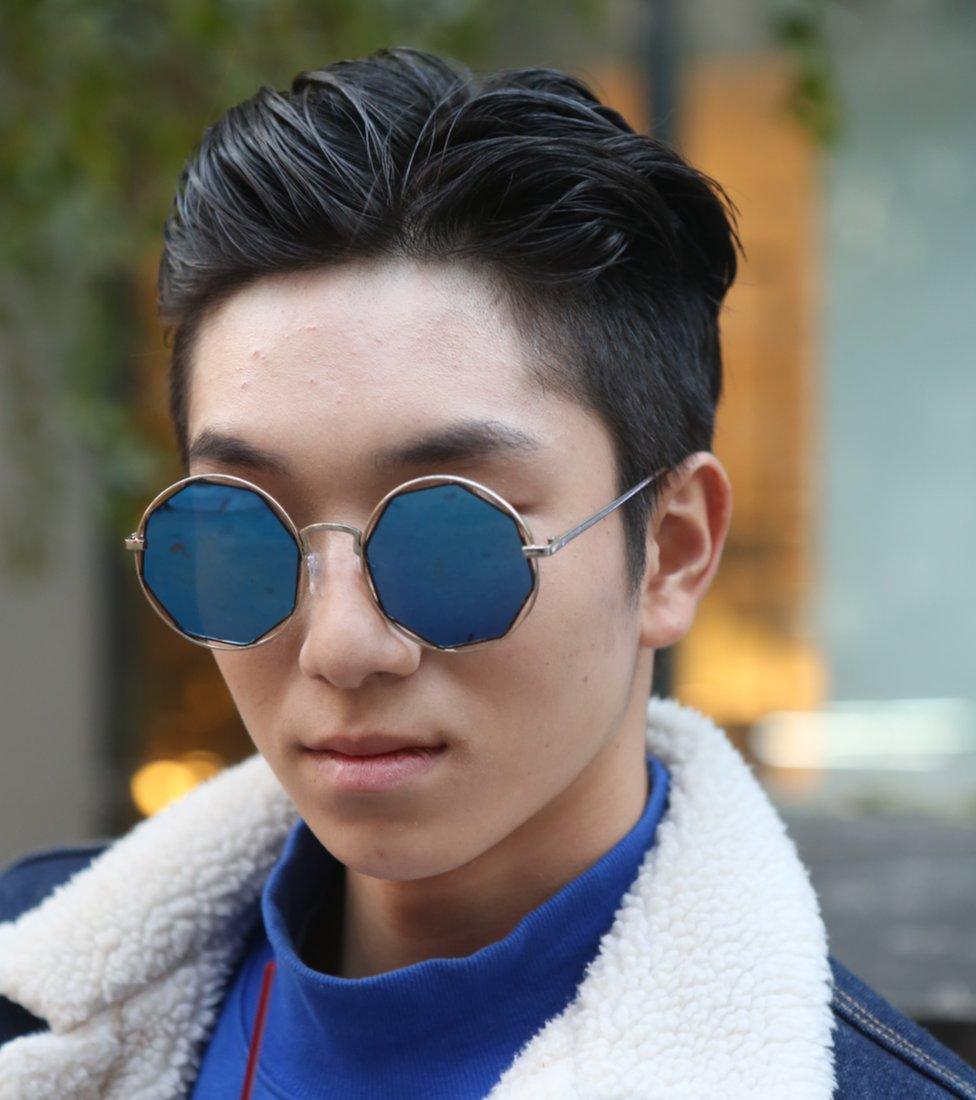
"I use toner and lotion, then CC cream (colour correction cream). I will use facial pack after facial exfoliating."

One man is there for his wedding make-up, a common practice for men in South Korea. He chooses to get red lips for his special day.
"We make their complexion cleaner, eyebrows darker, contour their faces and draw out their masculinity in a way they can't do themselves," says Mr Han. He says men come in wanting to look like their favourite K-pop idols.
In the last few years, K-pop bands and Korean dramas have become the major influence on young people in the country and last year K-pop broke into the mainstream US and UK music scenes.
"I think Korea is a trailblazer in men's beauty culture, definitely in Asia at the moment, if not the world," says Joanna Elfving-Hwang from the University of Western Australia, who has done extensive research on beauty and image in South Korea.
"The way they (K-pop stars) play with masculinity, what it means to be a beautiful man in a heterosexual or non-heterosexual way, it opens up possibilities for men on the street and eventually makes it more acceptable."

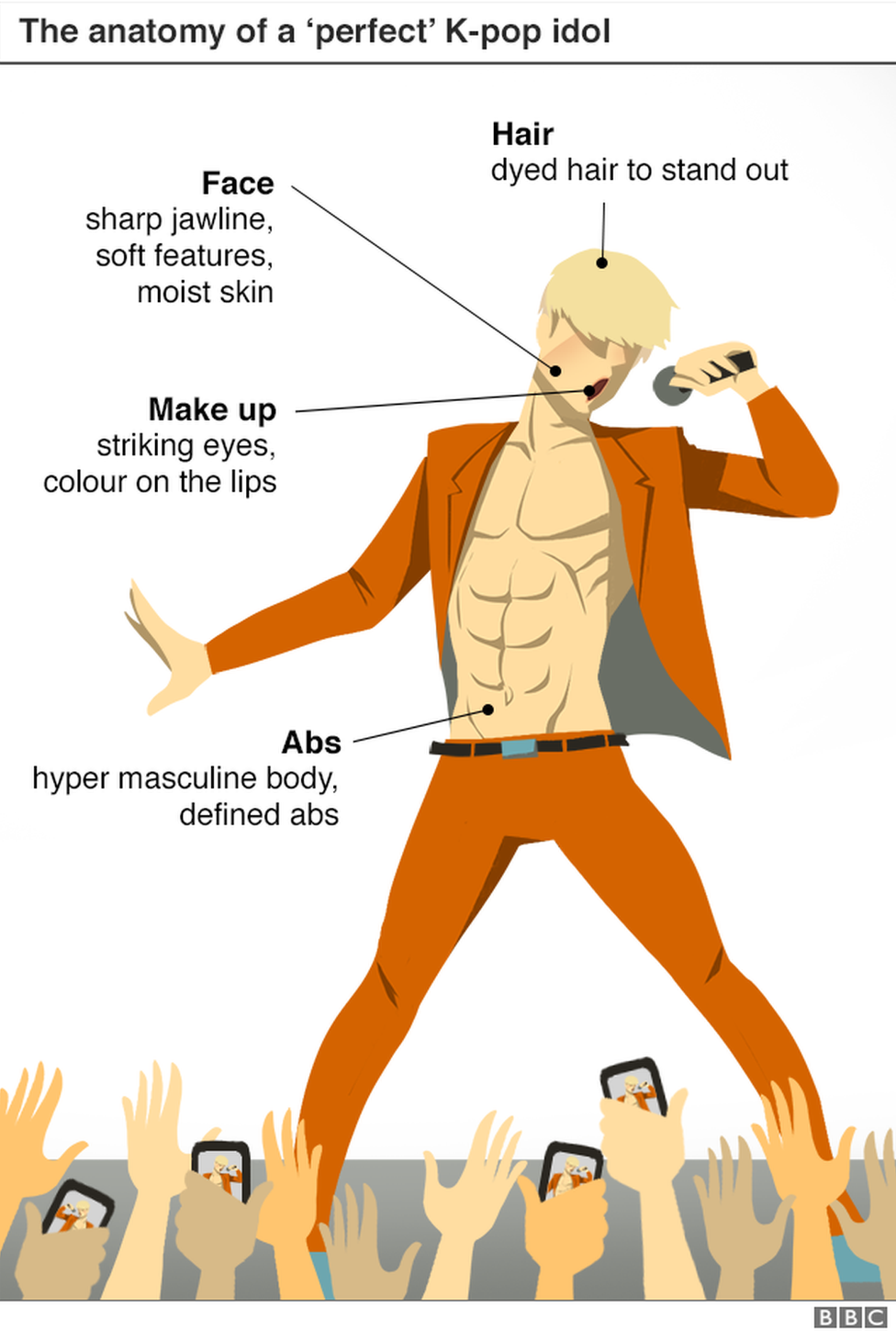

This doesn't mean every man in Seoul walks around with a full face of make-up.
But in young and fashionable neighbourhoods like Myeong-dong it's common to see men walking around with foundation or BB cream (blemish balm) - a moisturiser and light foundation hybrid.
More importantly it has allowed for a much looser interpretation of what's acceptable for men when it comes to beauty.
And some young Korean men are unapologetic about the drive to enhance their look.
From tough guy to pretty boy
That wasn't always the case. In the 1980s and 90s the salaryman was the prevailing male aesthetic. Suits, luxury watches and a traditional strong male look were the norm. Korea has mandatory national service and that moulded and defined what men thought would look appealing.
"In the 80s and 90s, men in Korean pop content were largely portrayed as tough guys in gangster and detective films, and rebellious young men in some TV dramas," says Sun Jung, the author of Korean Masculinities and Transcultural Consumption.
But all that changed in the mid-1990s when music group Seo Taeji and The Boys came onto the scene, says Prof Elfving-Hwang. They used rap, rock and techno influences and incorporated English language into their music.
They kick-started fan culture which has now become a major force in the music industry, she says.
Then followed the big entertainment companies churning out K-pop girl bands and boy bands, and their influence has been like nothing before it.

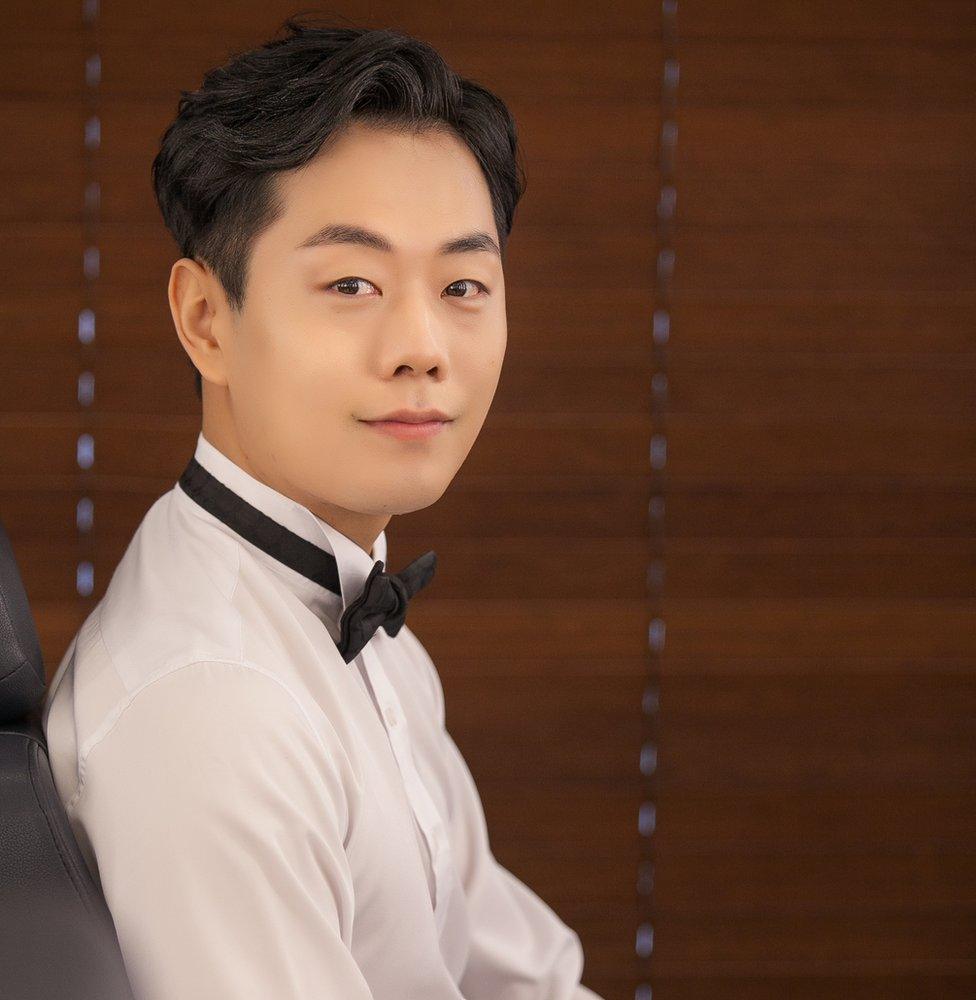
In South Korea, men often wear make-up for their wedding day

"Compared to the 80s and 90s, now there are a lot more soft masculinities - pretty boy images and gentle male images - represented in media, and consumers welcome and widely consume them," says Dr Sun Jung.
They came to be known as Khonminam - combining the words for flower and a beautiful man. She says it takes inspiration from similar concepts in Japan of bishonen or beautiful boys and Shojo manga - girls comics.
But it's not feminine.
"I think the phenomenon should rather be explained through the notion of hybrid or versatile masculinity - soft yet manly at the same time - which is different from effeminised," says Dr Jung.
She cites Song Joong-ki, the star of hugely popular Korean drama "Descendants of the Sun" as the embodiment of this. He may be a khonminam in his look, but as a special forces captain in the military he is also a tough guy.

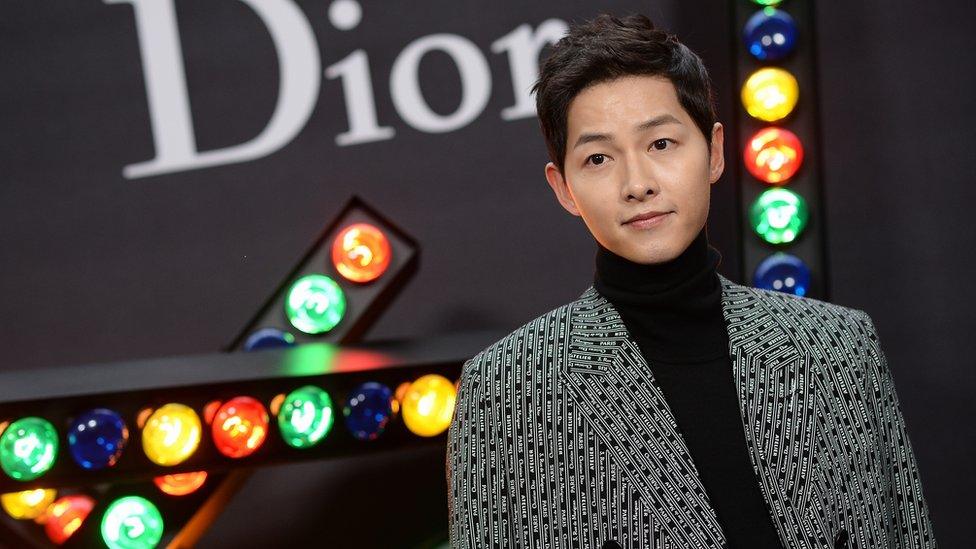
Song Joong-ki is seen as the typical Korean male appeal

Descendants of the Sun and other Korean dramas have helped spread the South Korean look around Asia and now the world. And that means the ways to achieve that look are in demand.
Male idols are plastered on billboards in Seoul hawking products like face masks and moisturisers. Companies are actively hiring men to sell women make-up products.
Their fandom in places like China, Thailand and Singapore is not to be dismissed either. Huge crowds show up to their performances and product launches.
"Men in China and South East Asia tend to think that Korean men are the typical beauty," says Lee Gung-min, a consultant to South Korean beauty companies.
"That is having a huge impact on male consumers in Asia."
Korean beauty boom
Beyond Asia, brand Korea is starting to sell well in the US and Europe.
Walmart and Sephora now have K-beauty (Korean beauty) brands on their shelves and beauty bloggers are spouting the virtues of the 10-step K-beauty routine for glowing skin. American and European make-up enthusiasts are fast becoming acquainted with brands that were previously only popular in Asia like TonyMoly, Innisfree and Etude House.
Most interestingly, established beauty brands are making their own versions of products that originated in South Korea - like Clinique, Lancome and L'oreal introducing cushion compacts.

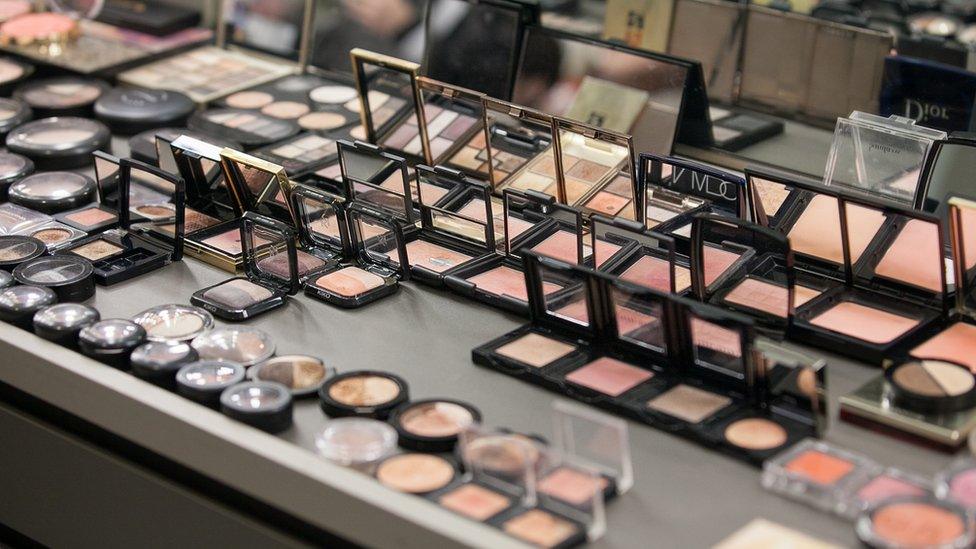
Korean beauty brands have surged in popularity in many Western markets

The drive for the perfect face has undoubtedly also contributed to a well reported rise in cosmetic surgeries in South Korea to achieve the desired jawline or nose. But it also stems from a deeply ingrained preoccupation with how you present yourself to others.
That's a common sentiment across Seoul. People here really care about how they look and how they come off to the world - both men and women.
You can't walk a few steps without coming across a cosmetics or skincare shop with a salesperson outside trying to lure you in with a free face mask, and companies are definitely capitalising on that self-care culture to sell products.
But men are now as much at the receiving end of that drive - or perhaps pressure - for self enhancement that women have felt for generations.
All images copyright.
- Published5 February 2018
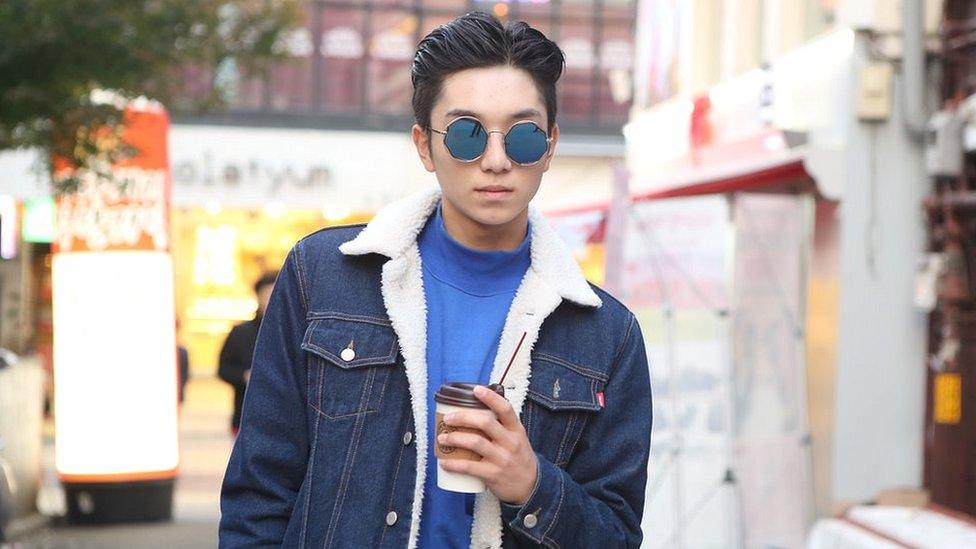
- Published27 September 2017
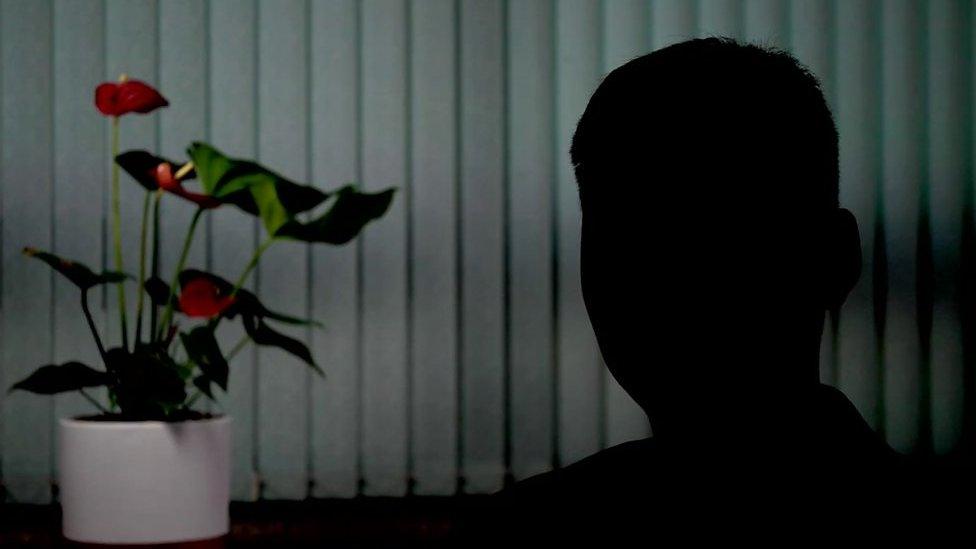
- Published28 January 2016
